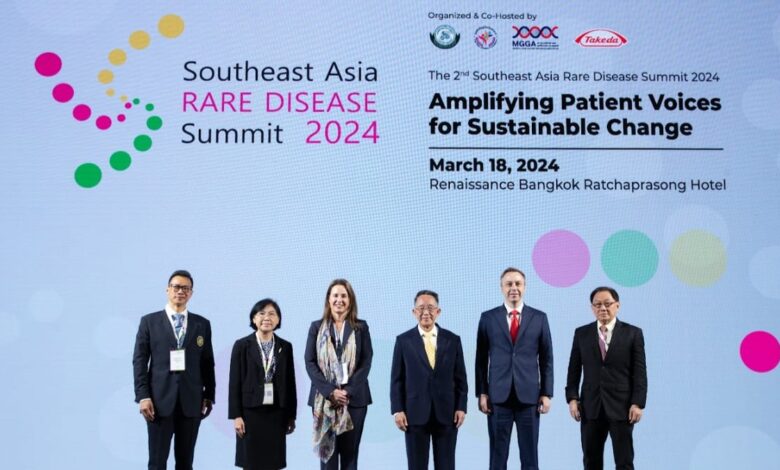Harnessing partnerships for better public health outcomes

For instance, over in Thailand, Takeda entered a Dengue-Zero memorandum of understanding (MOU) in 2022 with the Department of Disease Control, Ministry of Public Health, Bangkok Metropolitan Administration, medical associations and like-minded partners. The coalition’s joint efforts span awareness activities, a vector control programme as well as a surveillance system for enhanced dengue prevention and control.
In Vietnam last September, an MOU was signed between Takeda and VNVC Vaccination Centers as part of an initiative to raise awareness about the threat of dengue among the medical community and public.
More recently, Takeda launched a collaboration with Alodokter, a leading healthtech platform in Indonesia, to raise awareness and educate workers, healthcare professionals and the general public on the dangers and prevention of dengue.
CLOSING THE DIAGNOSIS GAP FOR RARE DISEASES
Strategic partnerships have also played a pivotal role in elevating the management and treatment of rare diseases in India and Southeast Asia, notably in tackling diagnostic delays.
Takeda teamed up with the Rare Disorders Society Singapore to raise funds and bridge the diagnosis gap for Gaucher and Fabry diseases using an innovative symptom matcher tool. The collaborative #AreYouRare? campaign guides individuals to an online questionnaire specific to each disease, aiding in the assessment of disease risks.
Furthermore, Takeda co-hosted the Southeast Asia Rare Disease Summit in March, in partnership with the Medical Association of Thailand, the Thai Rare Disease Foundation and the Medical Genetics and Genomics Association. The summit focused on improving access to diagnosis and treatment for rare diseases, resulting in commitments to implement impactful initiatives.
In addition to partnerships, technology forms the backbone of Takeda’s cooperation with SingHealth, King Edward Memorial Hospital Australia, Curtin University and social enterprise FrontierSI. The collaboration has led to the development of Cliniface, a 3D facial visualisation, measurement and analysis software that is poised to aid clinicians and researchers in recognising how facial variation relates to rare diseases and other conditions.





